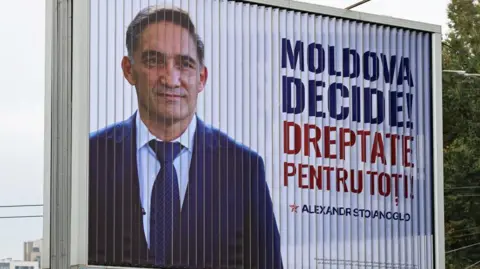Moldovans are casting their votes in a crucial second-round presidential run-off that could determine the country’s future trajectory—either advancing towards European integration or pivoting back towards Russian influence.
Incumbent President Maia Sandu, a staunch advocate for closer ties with the European Union, is up against Alexandr Stoianoglo, the former chief prosecutor she dismissed, who now seeks to position himself as a balanced alternative between Western and Russian interests. Stoianoglo’s campaign is bolstered by the support of the pro-Russian Party of Socialists, raising concerns among some that his victory could tilt Moldova back into Moscow’s sphere.
Amid the political tensions, Moldovan officials have raised alarms about potential election interference, pointing fingers at a fugitive oligarch based in Russia, allegedly attempting to sway the vote in favor of Russian interests. The Kremlin, however, has firmly denied any involvement, echoing its stance from the recent disputed elections in Georgia.
 Reuters
ReutersMoldova’s EU aspirations are also on the ballot, as recent constitutional changes to support EU membership narrowly passed during the first round, despite allegations of vote-buying schemes that reportedly influenced hundreds of thousands of votes.
Adding complexity to the election are allegations against Ilan Shor, a controversial oligarch accused of channeling millions from Russia into Moldova to sway voters against EU integration. Although Shor denies any illegal activities, his involvement has sparked widespread concern. Stoianoglo has distanced himself from Shor, yet his ties to pro-Russian factions continue to fuel debate.
With the nation’s future hanging in the balance, Moldovans at home and abroad are now making their voices heard in what could be a defining moment for Moldova’s political landscape and its relations with Europe and Russia.
BBC News Source link


